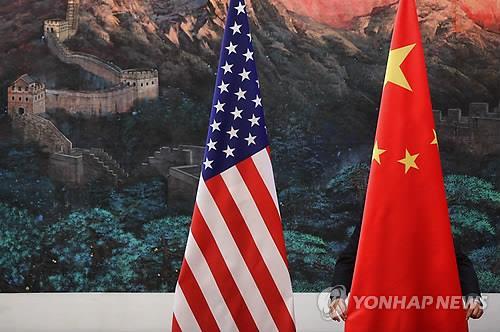U.S. Biosecure Act Fuels Debate on China’s Biotech Threat
Discover how the U.S. Biosecure Act targets Chinese biotech firms, reshaping global supply chains and sparking debates on innovation and national security.

Key Points
- The U.S. Biosecure Act aims to blacklist major Chinese biotech companies, citing national security concerns over potential data misuse and bioweapon threats.
- This legislation could significantly impact global pharmaceutical supply chains, raising fears of increased costs and reduced access to vital technologies.
- Balancing national security with international cooperation is crucial for fostering innovation and maintaining a resilient biotech landscape.
The gears of legislation in the United States are turning fast, especially when it comes to national security and competition with China. Recently, the U.S. House of Representatives passed the Biosecure Act with a substantial majority, which aims to blacklist prominent Chinese biotech companies. This critical legislative movement underscores the heightened tensions in the ongoing race for technological supremacy, particularly in the realm of biotech. But what does this mean for the future of international biotech partnerships, security, and innovation?
Understanding the Biosecure Act
The Biosecure Act, which cleared the House with a decisive vote of 306 to 81, specifically targets five major Chinese biotech entities:
, MGI Tech, Complete Genomics,
, and
. The legislation is based on the argument that these companies pose a national security threat, potentially endangering sensitive biological data and advancing capabilities that could be used for bioweapon development. This perspective is held by many lawmakers who fear that allowing Chinese firms to continue operating freely in the U.S. could lead to significant risks for American citizens.

The Implications for Global Biotech
The enactment of the Biosecure Act could have ripple effects throughout the global pharmaceutical landscape. According to Bloomberg Intelligence, there's a robust 70% chance this bill will successfully navigate the Senate and become law, given its strong bipartisan support. Such a move could radically reshape both the U.S. and global supply chains, as a substantial portion of pharmaceutical ingredients are sourced from Chinese biotechnology firms.
Moreover, the companies affected by the legislation, particularly Complete Genomics, argue that the bill not only jeopardizes their operations but also strengthens their U.S. rival
, which already holds a dominant market position in genetic sequencing technologies. This scenario sheds light on a paradox; while the U.S. aims to secure itself from foreign threats, it may inadvertently stifle competition and innovation in its own backyard.
Potential Economic Consequences
As the Biosecure Act aims to restrict business interactions with these Chinese firms, it could have significant economic implications. The bill is an attempt to safeguard American jobs and ensure that U.S. taxpayer funding is not funneled into entities seen as threats. Representative Mike Johnson emphasized that such businesses could put federal contractors at risk, stating that reliance on Chinese biotech companies jeopardizes sensitive American healthcare data. Yet, experts warn that isolating the U.S. from these valuable international markets could lead to higher costs and reduced access to critical technologies.

Looking Ahead: A Balancing Act
The landscape of U.S.-China relations continues to evolve amidst a complex array of challenges and opportunities. While the legislation reflects a broader fear of losing technological dominance, it could also alienate potential collaborators in the biotech sector, leading to a less secure and innovative environment. It's paramount for lawmakers to consider the long-term implications of such policies—not just for national security, but for economic vitality and public health.
As discussions surrounding the Biosecure Act and its potential implementation continue, stakeholders from both sides must engage in constructive dialogue. Moving forward, a balanced approach that prioritizes security while fostering international cooperation is essential for the advancement of global health innovation. Only through collaboration can we build a more robust and resilient future in biotechnology.

